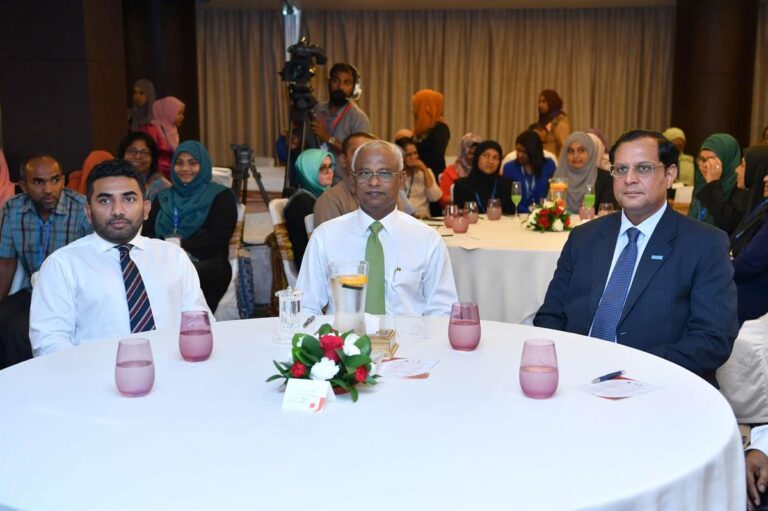The symposium was designed to spark meaningful dialogue to address the gaps and challenges faced by practitioners, researchers, implementers and the regulatory body in the current practice of traditional medicine in the Maldives. WHO, as organizer of the symposium, provided a platform that successfully brought together different stakeholders and identified a roadmap for the future.
In his speech, His Excellency the President stressed the importance of guaranteeing the safety and proper use of traditional medicine by practitioners. Noting that traditional medicine is linked to both the body and mind of people, he stressed that it must be practiced by professionals; who are familiar with the subject. »
Furthermore, the President said that “Dhivehi-beys” should be systematized, in order to identify those who need alternative medicines and the results of these treatments. President Solih then highlighted the increase in diseases linked to lifestyle choices, noting the increase in cases of diabetes, high blood pressure and cancer in the Maldives’ recent history.
“Changes in our lifestyle would create a healthy society. The alternative medicine sector must be expanded in order to establish preventive measures,” emphasized His Excellency the President.
During the WHO representative’s in-depth technical presentation on the topic, Dr. Arvind Mathur reflected on the importance of traditional medicine even in modern times. “Traditional medicine is highly acceptable and mainly used for chronic diseases. » he noted. “It gives us more choices when it comes to lifestyle diseases, as complementary medicine. »
WHO Regional Advisor for South-East Asia, Dr Kim, was invited by WHO to the Maldives. He gave a brief overview of the WHO Traditional Medicine Strategy (2014-2023) and highlighted national best practices in the South-East Asia region for this area and key areas in which The Maldives can improve depending on the specific needs of the country.
The symposium proved to be a successful opportunity to uphold and signify the practice and values of traditional medicine or “Dhivehi Beysverikan”. WHO is proud and privileged to continue to support the Government of Maldives in its unique efforts to meet the health needs of the population.
